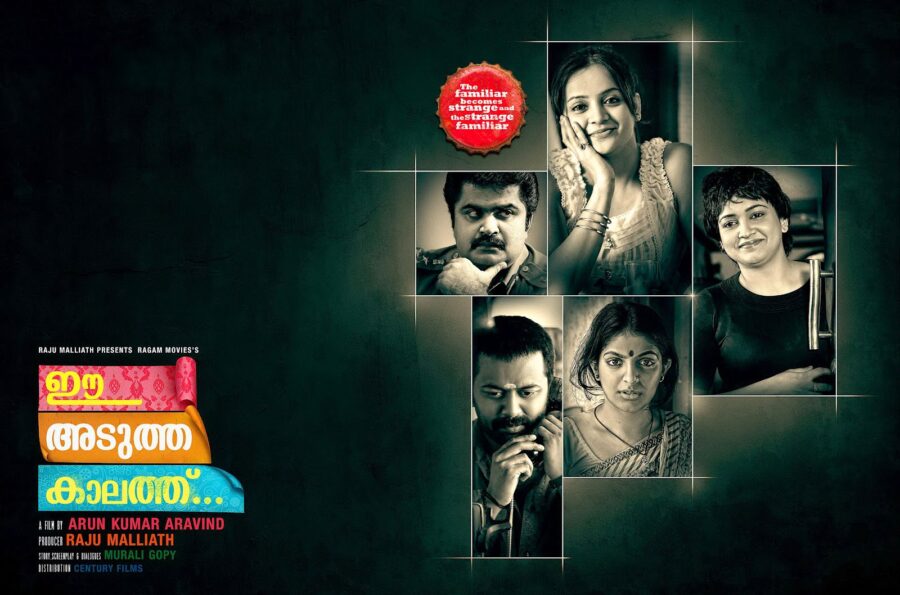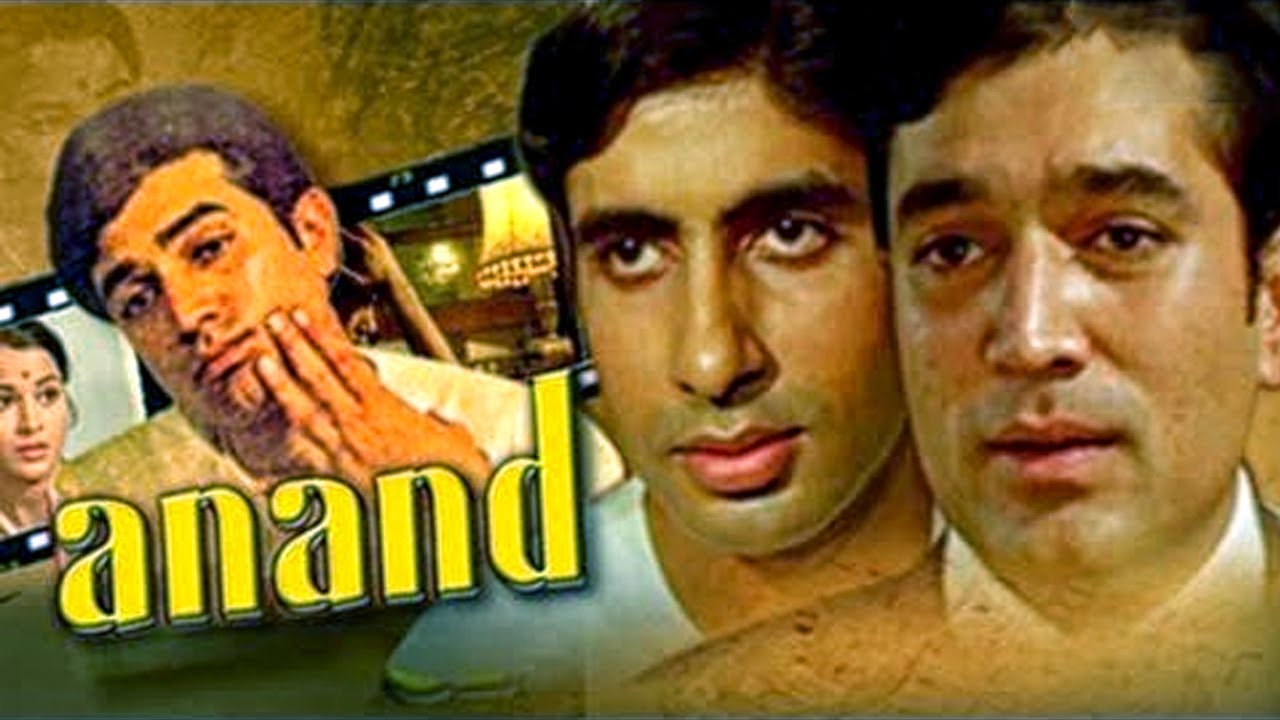One of the three central characters in Arun Kumar Aravind’s Ee Adutha Kaalathu (In Recent Times, 2012) is a wealthy and sophisticated businessman. At home, he is a sadistic and abusive husband. The violence he inflicts upon his wife is not physical. Her scars are grave but invisible to a passive outsider. Another character, a lower-level employee in a corporate hospital mutely endures sexual harassment by her boss. There is a serial killer on the loose, murdering senior citizens living alone in the city’s houses. The bloodshed is relegated off-screen. The one instance in the film when the audience witnesses an actual murder is without bloodshed too. The victim dies quickly and silently, of internal bleeding.
The instances of violence in the film are closeted in nature – a commentary on society in which it exists, where photogenic facades of rich and happy families and modern workspaces often hide filth that no one wants to address but sweep under the carpet. The corpses in the film are dumped on a ground next to a village where the city disposes of its garbage. The upper-class is far removed from the sight of the garbage, but the stink permeates its living rooms.

Ee Adutha Kaalathu is a smartly-written film that emerged as a sleeper hit in Kerala in spite of the lack of big stars. The non-linear narrative that interweaves stories of many characters living in one city, proceeds at a fast pace, in a nearly clinical fashion. When Madhuri (Tanushree Ghosh), a former B-grade Hindi movie actress, is put through brutal abuse by her husband, Ajay Kurien (Murali Gopi, who’s also the scriptwriter), or when Vishnu (Indrajith), a rag-picker, stands helpless in the face of a financial trouble he might never be able to resolve, the film doesn’t pause to empathise with them. The focus is on the stylised storytelling and the big picture where the meek and the vulnerable have eventual victory over the abusers with the help of what might be one of the greatest weapons in the postmodern society – information.
The film’s climax, where the characters untangle their individual lives, doesn’t involve a stunt sequence but unfolds in the private – behind closed doors, and, in one case, in a close-up shot where two friends whisper to each other. Vishnu’s life changes after he witnesses a clandestine meeting in a house he enters to steal one midnight. Madhuri hires him as a watchman – literally and figuratively – to guard her secret that he possesses. Bonacaud Ramachandran (Jagathy Sreekumar), an unprincipled yellow journalist, reins in Ajay Kurien using classified information he gains from one of his journalistic sources. In spite of everything that happens, the facade of the characters’ lives remains intact.
Malayalam cinema, in the past, has used this theme of ‘leak of private information’ in crime dramas such as Drishyam, where photos taken on hidden camera becomes the root of a series of events that include a murder and police custody torture. What separates Ee Adutha Kaalathu from others is its amusing amoralist tone. Its concerns aren’t in the breach of honour that a privacy leak threatens to constitute. Instead, it uses the tales of ordinary people to dissect the power that secretive information lends to a party in a world that pretends to be transparent.
The shift of power from one party to another in the latter half of the film is subtle but palpable. Murali Gopi uses no expository dialogue or loud confrontational scenes to mark it. But you sense a change in Madhuri’s body-language when she pulls her friend close at her wedding party and flashes an old photograph that has the power to ruin her marriage and public image. Her new-found confidence has an edge of threat. Kurien, who wore his upper-class identity like a crown and treated his subordinates and unsophisticated locals like parasites, cowers in fear when he realises that the secret about his masculinity could go public anytime. Vishnu, for once, decides to act wisely and sort his life.
Recommended
Sameer Thahir’s Chappa Kurishu (2011), an uncredited copy of Korean film Handphone, has a similar theme. A lost smartphone containing crucial personal photographs launches a cat-and-mouse game between the finder, a meek and impoverished supermarket employee, and the owner of the phone, a young tycoon. The latter wants to retrieve the phone dearly, and his desperation becomes his Achilles heel. The finder of the phone starts to devour the new-found power. Interestingly, it isn’t financial gain that he’s seeking from it but a sense of success which is very much illusory. Chappa Kurishu loses focus as it starts to direct all its energy towards the showdown between the two men that is characterised by attention-seeking slow-motion shots. Nevertheless, the film is a worthy addition to contemporary Malayalam cinema’s expanding pool of critique of the phenomenon of privacy in the digital era.
Ee Adutha Kaalathu is streaming on Sun NXT.



